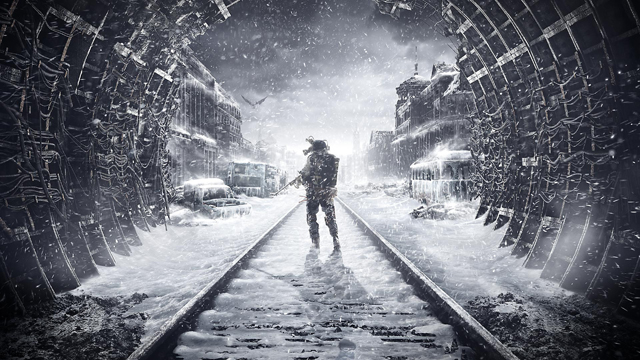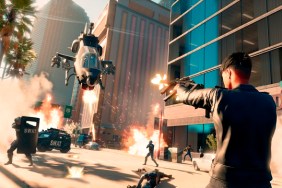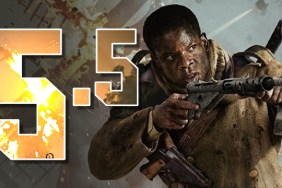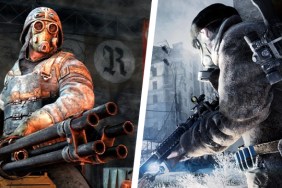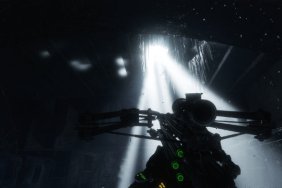Video game fans who love atmospheric experiences would enjoy 4A Games’ Metro series. Based on author Dmitry Glukhovsky’s novels, the franchise is set in a post-apocalyptic version of Moscow and explores the devastating effects of nuclear warfare on ordinary civilians. The underground metro stations that survivors flock to each develop their own cultures and political ideals, culminating in the strife that 24-year-old protagonist Artyom experiences during the events of the first title, Metro 2033. The following are a few reasons why curious video game fans should check out this series if they haven’t already, especially with the recently released third entry, Metro Exodus.
Why video game fans should check out the Metro series | Customizable weapons
Unlike many shooters published by EA and Activision, the Metro franchise allows players to customize their weapons almost from the get-go. Assault rifles like the Bastard can be upgraded to fire faster, reload faster, reduce recoil, and improve accuracy. The attachments that players have access to in the first two games include scopes, bayonets, suppressors, laser sights, extended barrels, and stocks, all of which are essential to equip and experiment with if fans hope to last long on higher difficulties.
What aides in grounding the experience is the fact that enemies also have the ability to customize their weapons as well. Though these guns almost never reach the level of sophistication that one could achieve with the right amount of currency, opponents become that much harder to fight. Each scuffle has the possibility of yielding substantial rewards too, as a combatant may drop an expensive laser sight or autofire adapter.
As great as all of these customization options are, new fans should be warned that playing on high difficulties makes attachments more expensive. People who want to play around with the variety of guns available to them should keep to easier modes, at least until they get a feel for what weapons they prefer the most.
Why video game fans should check out the Metro series | Immersive environments
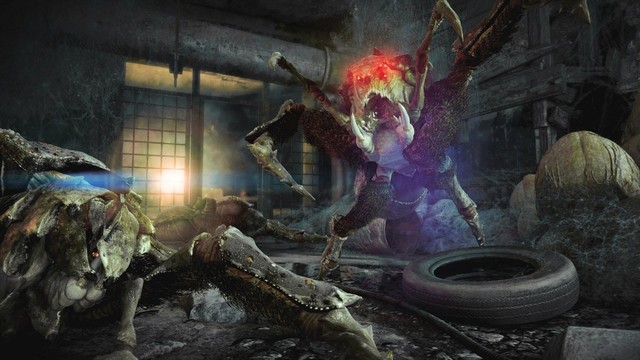
The Metro series is best played slowly. Navigating through tunnels alone while some kind of mutated monster howls in the distance is exhilarating. Talking to the mentally ill properly illustrates the maddening effects of being trapped underground for decades. The brutality of the people of this world, evidenced in festering cadavers and blood inching along the pavement, is a constant reminder that nothing in the apocalypse is unforgiving.
On the contrary, witnessing a group of children playing with some shoddy toys is a reminder that life always finds a way to go on. Particularly in Last Light, a sense of childlike wonder permeates every new environment that fans lay their eyes on. It’s hard to forget the first time you venture outside in the harsh cold, as it evokes a sense of beauty that one can’t find in the Russian metro.
This isn’t to say that the entire series is made up of slow moments. There are plenty of instances where players have to blast away hordes of spiders or defend boats from poisonous aquatic creatures. Firefights frequently erupt between warring factions, and tanks appear every now and then to wreak even more havoc. As fun as these sections may be, new fans shouldn’t expect these high-adrenaline moments to occur often. The real draw of this franchise will seemingly always lie in its quieter elements.
Why video game fans should check out the Metro series | Well-written stories and dialogue
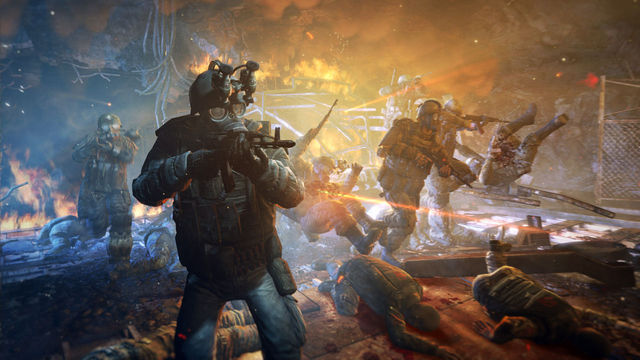
Anyone who’s played a typical first-person shooter is familiar with the standard narrative of an unlikely soldier defying all odds to lead his or her comrades to victory against some kind of malevolent army. The Metro games don’t exactly fit into that trope, as main character Artyom is born and raised in an independent station called Exhibition that seeks no partnerships with allies or quarrels with enemies. When this small group of survivors is under attack by a mysterious group of psychic beings called the Dark Ones, the young man is tasked with journeying to the underground’s capital, Polis, in order to enlist help for his station.
Along the way, Artyom is caught in a conflict between the communist Red Line station and their rival, the Nazis Fourth Reich. These competing ideologies often thread a moral gray area, as each faction ultimately does what it thinks will best ensure its survival. It’s impossible not to listen to some of the dialogue that soldiers have regarding their loved ones or their fear of dying.
Eavesdropping on these conversations adds a level of solemnity that’s not seen often in video games, despite communists and Nazis appearing everywhere. When all is said and done, we’re all still human. It’s similar to the Hitler scene in Wolfenstein 2: The New Colossus as it shows some humanity within these horrible monsters without making you actually sympathize with them because they’re still fucking Nazis.
The overarching story surrounding the mysterious Dark Ones is also quite compelling, as it raises ethical questions on whether or not it’s OK to exterminate an entire species without really understanding its intentions. Fear of the unknown is a powerful theme that fuels the motivations of both Artyom’s friends and enemies, though it’s ultimately up to players to decide how the protagonist will be swayed.
Themes of power and control are also pretty evident the more fans engross themselves in Metro‘s world, though those are best experienced for oneself while playing the games. Each title makes clear that one can never assume the best in people.
Fans looking for a first-person shooter series that isn’t fast-paced like Call of Duty or Battlefield may find the Metro games right up their alley. Each title’s mature concepts may not be for everyone, but those that are willing to sit down and play an intelligent interactive experience may find a lot to love. Metro Exodus will hopefully follow in the franchise’s footsteps and deliver on the legacy that 4A Games has successfully manage to build over nearly a decade.
Metro Unique
-
Why Metro is the most unique FPS series around
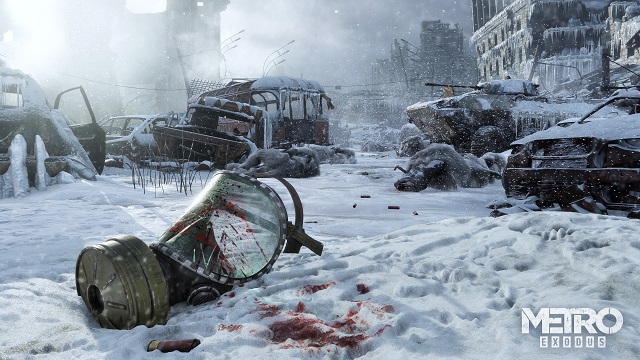
You have plenty of choices when it comes to your post-apocalyptic gaming dollar. There are also plenty of similar options out there, with the same sarcastic wit and over the top attitude. Why settle for the ordinary when you can latch onto one of the unique shooters around? Here's everything that makes Metro stand out from the competition. -
Russian Vistas

Perhaps the most defining trait of the Metro series is its Russian roots. Metro is authentically Soviet, based on a series of novels written by Dmitry Glukhovsky and translated from the tongue of the motherland. You can hear said tongue all over the games as well as you explore bombed out authentic Russian locales. -
Russian Wildlife
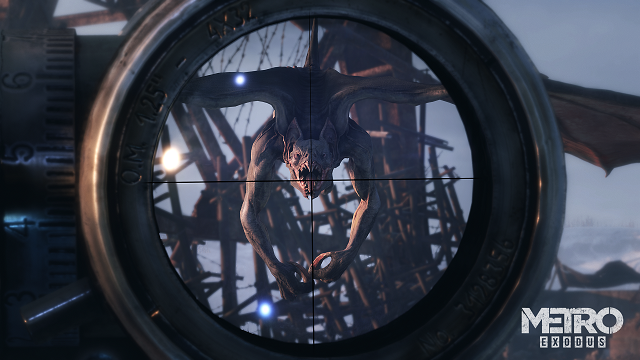
Prowling those locales are mutated giant versions of some of Russia's signature predators. In what other series will you be fighting giant grizzlies and flying "demons" based on bloodsucking bats. Exodus introduces mutated Russians into the mix, but the bestiary is already pretty expanded, so we won't fault them too much for going to the oft-used zombie well. -
Mother Russia Reborn
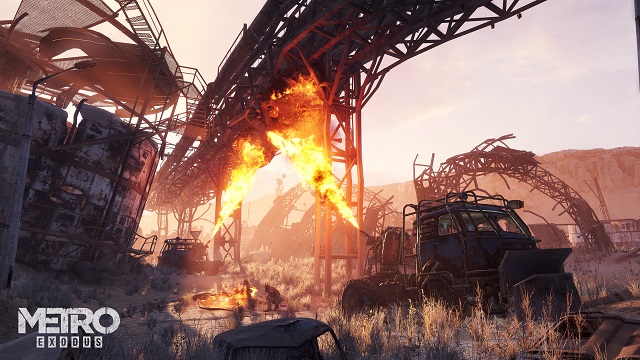
Whether it's the underground tunnels of the first games or the open world locations of Exodus, you just don't see such a wide range of locations in this type of game. Metro's Russia can be harsh and uninviting and it can also be colorful and hopeful. It all depends on what the game needs and the series has always been flexible enough to accommodate the wide array of locations -
Buy Things With Bullets
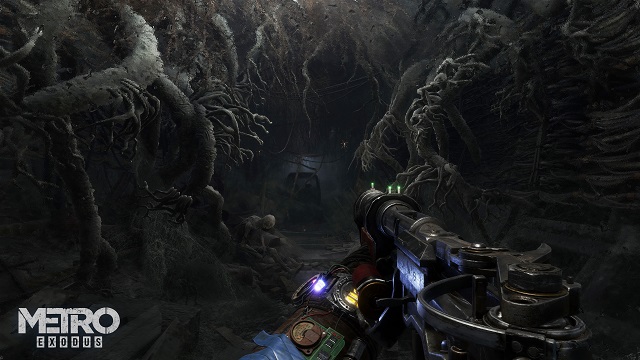
This system has been bred out of the newest entries of the series, but we'd be remiss if we didn't touch on one of Metro's original unique quirks. In the original games, part of the brutal difficulty came from your gun ammunition doubling as currency. Do you want that upgrade or do you want to shoot the mutant attacking you? -
Gas Mask Gripes
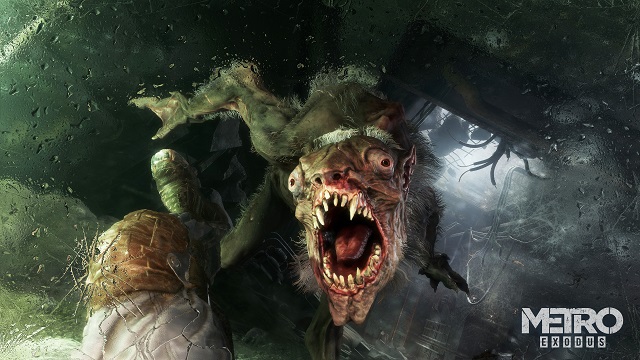
Of course, instead of an upgrade, you might want to procure a repaired gas mask. The outside world of Metro is a scary place, and you'll need a breathing apparatus to full explore above the tunnels in early games. It adds an additional resource to the proceedings, an important wrinkle to worry about when you're fleeing from mutants. -
Metro's Brutal Difficulty
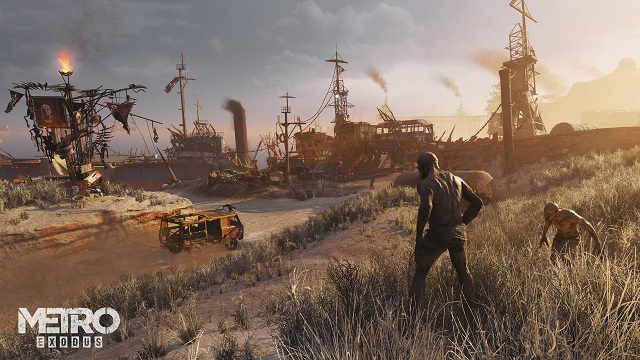
Between gas masks and bullet currencies, the early Metro games gained a reputation for being brutally difficult and altogether unforgiving. Exodus gives players more options, but there are still some pretty tough challenges in there if you crank the difficulty as high as it can go. -
The Thinking Person's Shooter
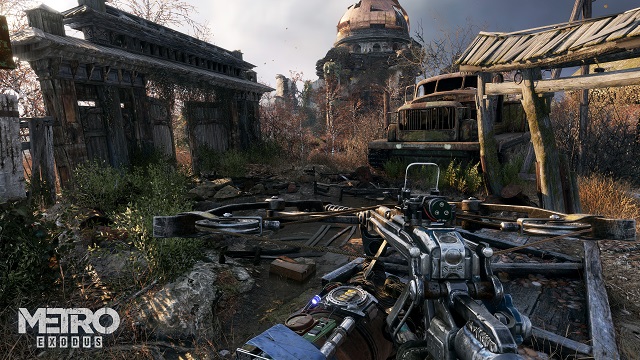
Fans of the series will say that the brutal difficulty curve can easily be mastered with some planning and strategy. This is a far cry from more bombastic first-person shooters, even with Exodus's focus on accessibility. You need to manage resources and consider each battle. Is it really worth risking your neck to take out these enemies? Or can you sneak past them? -
Focus on Story
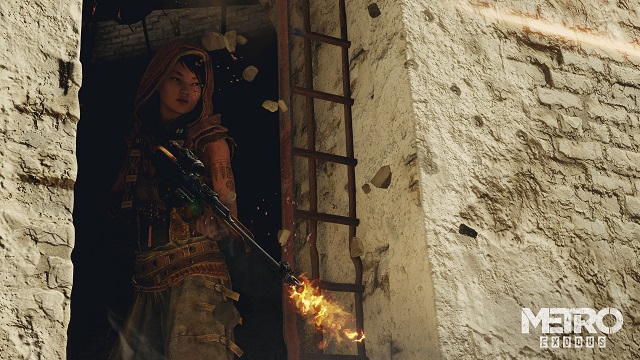
You may not think it's worth it at the moment, but then you remember that you want to see out Metro's narrative. The series has always had a unique narrative, and Exodus takes it to the next level with complete story focused scenes. -
Stalwart Companions
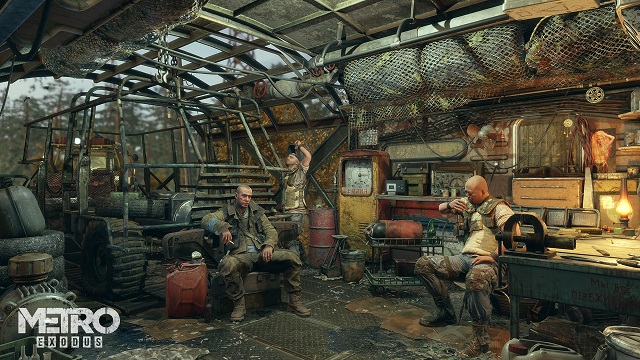
When boarding the train you ride all across Exodus' open world, you meet with a crew of likable companions. Their reactions to the world change as you shape it, morphing depending on how cruel or kind you end up being while under fire. It's a very engaging way to tell a narrative. -
Weapon Customization
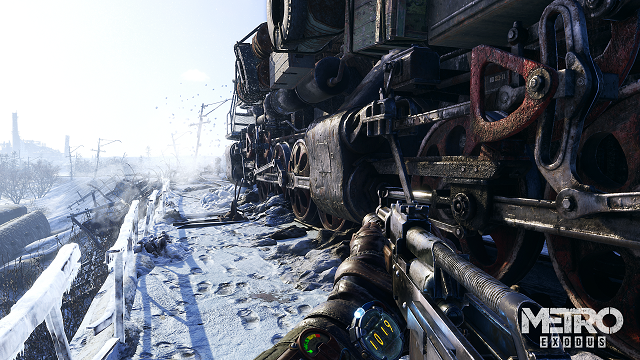
Your train is also home to your weapon bench, where you can tinker with your tools of war to your heart's content. Metro has always had unique weapons, but Exodus' custom weapons are truly a step beyond. Similar in scope to Crysis, it's just one more reason why everyone should give this unique series a proper shot.
